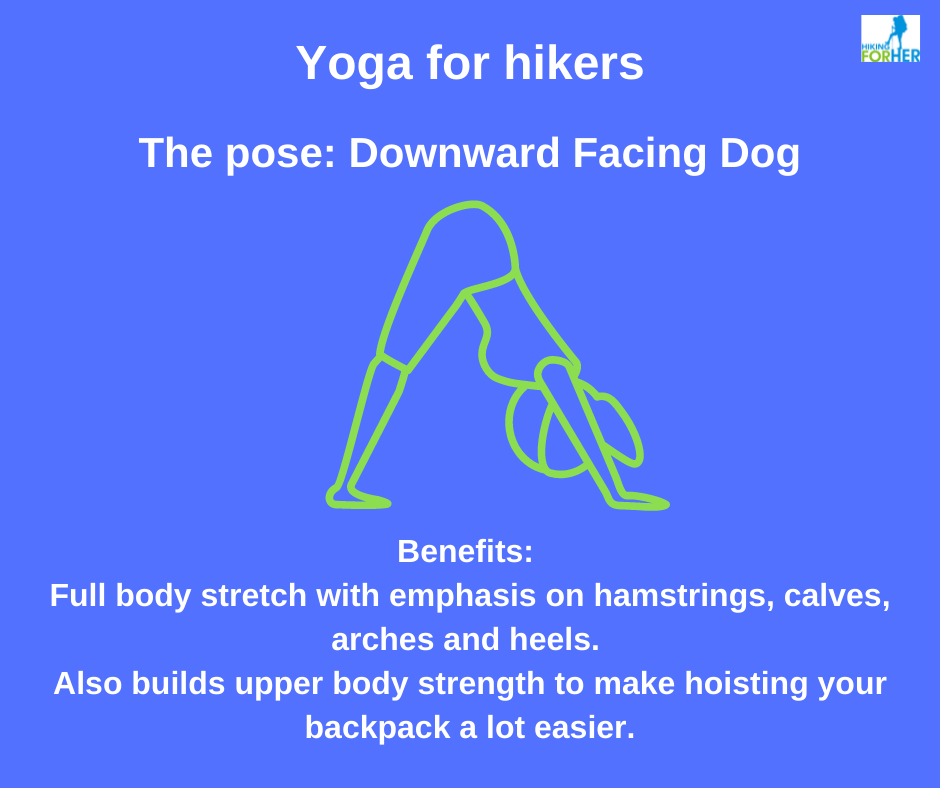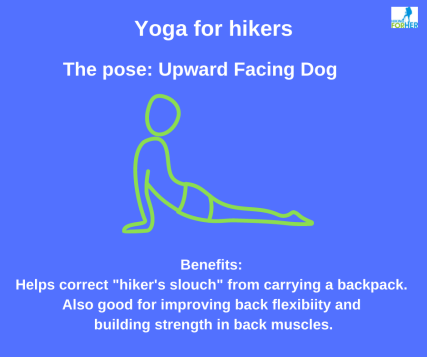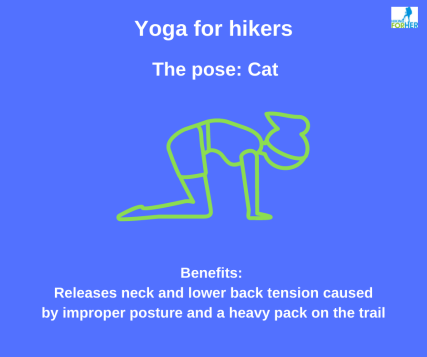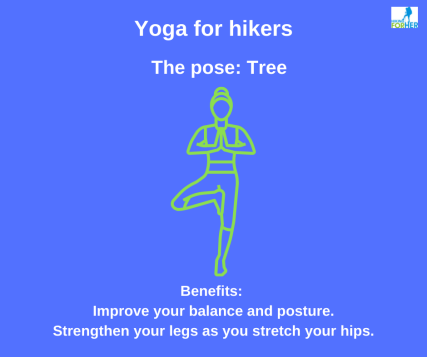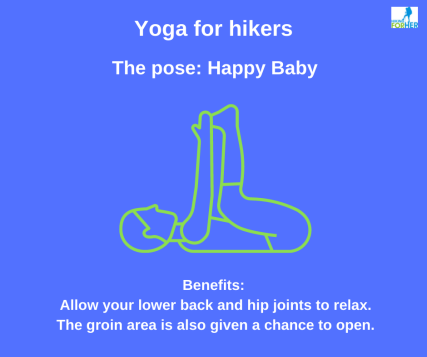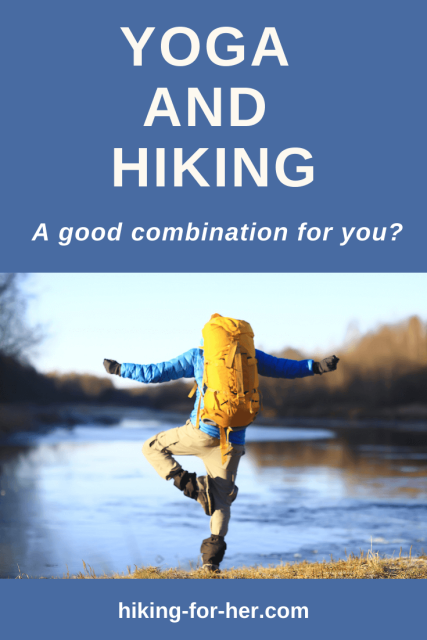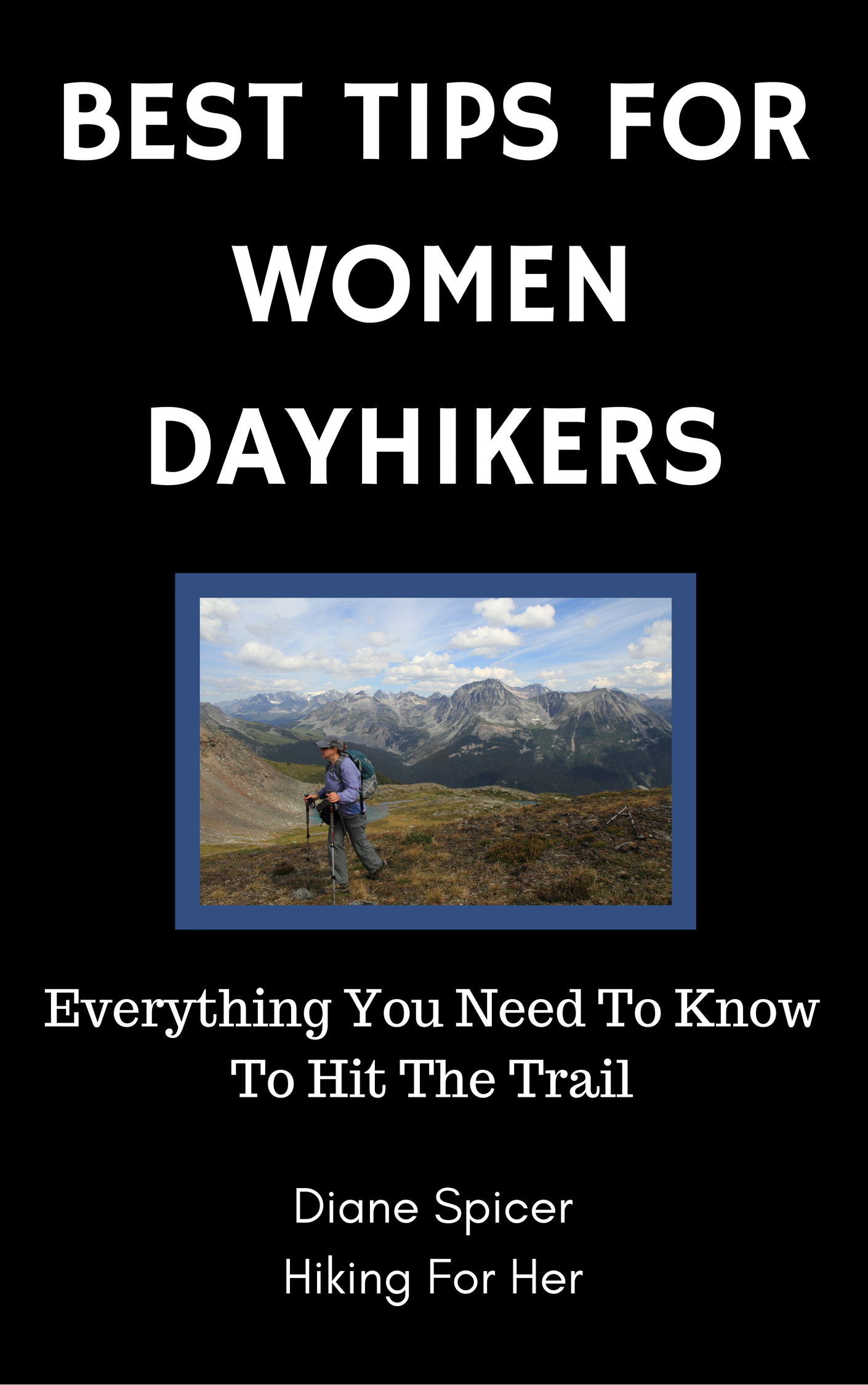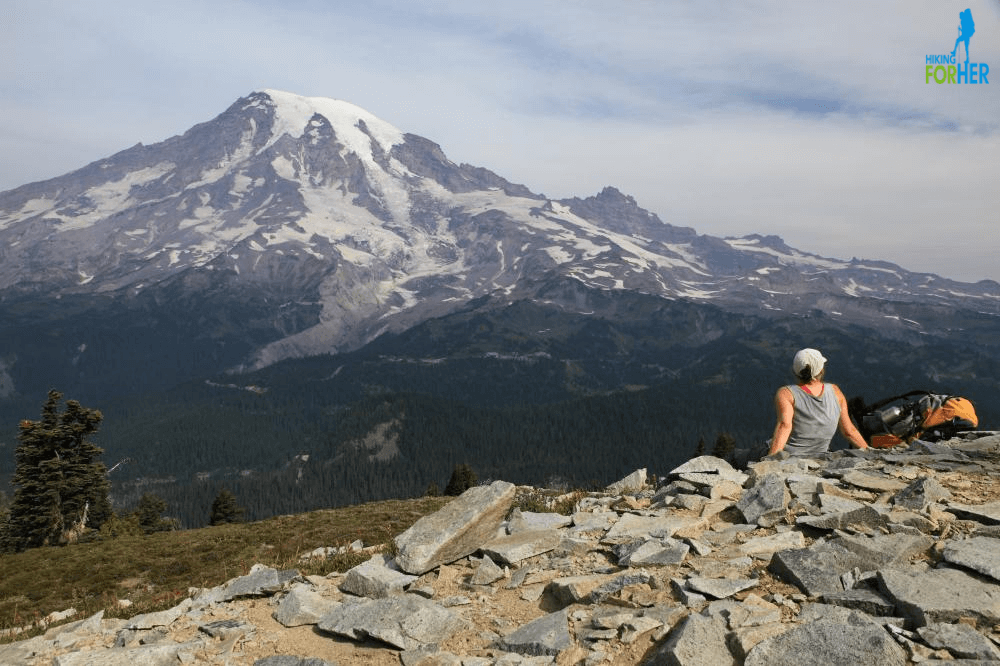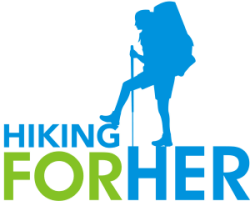
Yoga And Hiking:
Any Benefits To This Combination?
By Diane Spicer
Yoga and hiking: here's where I share an experiment to combine the two in my daily life.
As with any good experiment, it began with one simple question:
What benefits result from combining yoga and hiking on a regular basis?
Although yoga encourages slowing down, I won't be offended if you jump to these sections:
Yoga and hiking during a year long experiment
At first glance, yoga for hikers seems like a good idea.
- Yoga leads to strength and flexibility.
- Hikers need strength and flexibility.
But are there other tangible (or unexpected) benefits from a regular yoga practice for a hiker?
Let's take a look at the results of my year long experiment with regular yoga sessions and its effect on my hiking. I promise to stick to the facts and not try to persuade you to try yoga ;)
Yoga and hiking: the logic behind combining them
Yoga has been credited for everything from enhanced flexibility and stress relief to mental benefits like increased focus and positivity.
A one hour session of yoga can be a whole body workout without getting beat up, winded, mosquito bitten or muddy.
You can also use it for scratching that "gotta move" itch when the weather (or your schedule) is not cooperating.
My personal yoga goals
As a hiker, I was looking for these things from a weekly yoga practice:
- Reduction in lower back stiffness (noticeable when descending rocky trails or stepping over trail obstacles)
- Increased mobility in my knees and ankles (a problem when facing the latter part of a long hike)
- Less neck strain from wearing a backpack (preventing the literal "pain in the neck" I sometimes experience on a hike)
In other words, I craved more flexibility and better range of motion in my aging hiker body.
If this sounds familiar to you, come along on my exploration of the relationship between yoga and hiking.
Types of yoga for you to consider as a hiker
Because I was a complete newbie to the Westernized approach to yoga, I created a little glossary for myself when I started exploring yoga and hiking.
I share it here, with a few words about how it may be beneficial for you as a hiker.
This information is by no means an expert description of types of yoga. Read it knowing that there is much more to yoga than what I've summarized here.
- Hatha yoga: Great if you're just beginning your yoga journey, because the focus is on slow, deliberate movements. This allows a lot of individual fine tuning on where to focus your attention (breath, muscles during a pose, or both). You may need to hunt a bit for the right combination for your body.
- Iyengar yoga: This approach is perfect if you have a chronic injury or other physical limitations. The focus is on accommodations for each pose and sustained holding of a pose. Great for building endurance and working around your individual issues.
- Vinyasa yoga: Here is where breath work comes into sharp focus, something a hiker can appreciate and use on the trail. There are flow sequences tied to breathing patterns, so once you become familiar with the poses you can enjoy the sensation of transitioning between them. I admit my bias right here: this combination of active postures and breathing seems ideally suited to hikers.
- Yin yoga: Another great choice for hikers, as it spends time using gravity to work on lengthening and relaxing the deeper connective tissues hikers use all the time.
- Restorative yoga: related to yin yoga in its attention to slow and sustained practice, but uses fewer postures per session. Rather than gravity, it relies on aids such as belts, blocks, blankets, and bolsters for greater relaxation. I always picture a cozy nest as I sink into these types of poses on my off trail days.
Disclaimer reminder
There are many other types of yoga available to the Western audience.
I won't be mentioning them here , as I am trying to highlight where you might start in your exploration of adding yoga to your hiking regime.
Please remember that my list is biased toward my own experience as an older female hiker, and reflects my desire to share with you what works for me.
If you are a yoga expert, please don't be offended by my simplistic descriptions!
Yoga and hiking: my 365 day experiment
To be honest, I had ignored the benefits of yoga for 6 decades.
Yup, you read that right.
6 - 0.
But I kept hearing great things about a regular yoga practice.
Let's give it a chance!
I wanted to ease into things, with no pressure to look a certain way, dress in specific clothing, or purchase an expensive yoga mat.
That's why I decided on weekly group classes at a local fitness center, featuring the Vinyassa flow style of yoga.
It appealed to my desire to learn the poses from an instructor so I could practice at home, or use the poses on the trail.
- I signed up for a low cost version of classes, as I had no intention of using the fitness equipment or personal trainers, the pool, the sauna or any other amenities.
I attended yoga classes twice a week, with a variety of different instructors, for about one year.
- Time off for hiking trips and holidays, of course!
Each instructor had his or her own emphasis, so it was a great way to learn the poses and sink into the yoga vibe with no pressure.
The first 3 months
The biggest hurdle for me: shutting off my mind to enjoy a different way of moving my body.
Hikers tend to be very focused on results: how far, how much elevation gain, how many more hours until we get to the campsite.
I am no different!
But in yoga classes, not only was I NOT in charge of the 50 minutes, I had no idea what was coming next.
The vocabulary was brand new.
Some of the yoga poses were beyond my stiff, creaky ability as a newbie.
I forgot the names of the poses and had to watch the teacher many times.
Some instructors played music, making it hard to hear the cues.
All of this added up to one thing: I had to really focus on what was going on and tune out my own thoughts.
- Being mindful, in other words.
This is similar to navigating a new trail, right?
Tip:
Find a yoga class where there is no pressure to try a pose, or to achieve was is called "maximum expression of the pose".
Just like on the trail, to thine own self be true! (Hike your own hike.)
The next 3 months of yoga and hiking
After I got comfortable with teacher cues and the creative names of the poses, I concentrated on relaxing my mind.
It wasn't easy!
Long to-do lists kept popping into my mind, and instead of "flowing" I found myself multi-tasking yet again:
- Listening to cues, arranging my limbs into a pose, peeking at my neighbor to see if I was doing it "right", and having my mind do "busy squirrel" stuff the entire time.
Yuck.
You might have a different experience, but I found that the physical demands of learning yoga were nothing compared with the mental demands.
Who knew relaxing your mind could be so darn hard?
But I did notice physical improvements after 6 months of regular sessions:
- I could hold a pose with more ease as the weeks rolled along, which related to better balance during stream crossings.
- My neck felt more loose, both on and off the trail.
- My shoulders had more definition as well as strength (thanks to Downward Facing Dog, no doubt).
- My core muscles were stronger.
- I felt less lower back soreness after a long hike.
- My already strong hiking legs were getting even stronger but in more of an endurance way.
My decision was to keep going with the yoga and hiking experiment, as I could find no down side to the yoga classes.
Yoga and hiking: the final 6 months
After six months of yoga, it became harder to notice huge improvements in my body, but tangible benefits continued to come my way.
I had more energy, even in late afternoon when I usually felt lethargic.
The breathwork was handy during a dental appointment or when I became stressed.
I loved how warmed up my large muscle groups felt, and vowed to sneak in a few yoga poses at the beginning of a hike or in my tent after a day of backpacking.
After each class, I felt relaxed, peaceful, centered and just a bit
fatigued. Maybe I was getting a handle on my squirrely thoughts!
Yoga and hiking: overall results for one older hiker
Here are the final results of my little yoga and hiking experiment.
The conscious attention to breathing paid off on the trail, especially when pacing myself on a long uphill section.
My legs had better tone and definition, so my hiking pants fit a bit differently.
I could touch my toes either standing or sitting, with no pulling sensations. This was one of the things I had set as a goal, so I was pleased with this result.
I was getting longer stretches of deep sleep (not sure if it's related to yoga, but I'll take it).
My endurance on the trail seemed to be better, in the sense that I didn't notice fatigue setting in until later in the day compared with pre-yoga days.
Mentally, I could switch off the squirrel brain and really concentrate on the trail by focusing on my breath.
Wow! After twelve months, I was hooked!
Yoga had become part of my gear list as a hiker.
The yoga and hiking experiment continues
I've switched to an online yoga class in the comfort of my own home, thanks to our friend named "pandemic".
I aim for at least three half hour sessions per week, unless I'm on the trail.
The good results keep on coming!
I'm experiencing less lower back stiffness after a vigorous hike (or strenuous gardening).
I can tell that my balance continues to improve. I'm less shaky on ladders at home, or while navigating a tricky bit of trail with some exposure or slick surfaces.
And on the days I don't have my half hour yoga session, I don't sleep as well.
Take my personal testimonial and either reject or accept my findings, but I'm sticking with yoga as a hiker!
Now I'd like to share a few tidbits I've learned along the yoga trail. They might help you get started if you decide to experiment with combining yoga and hiking.
Best active yoga poses for hikers
I'm not an expert on yoga practice, and have no intention of becoming certified as a yoga instructor.
Here, I'm simply sharing the poses that feel good and that I return to again and again as a hiker for the benefits they provide.
Each of them focuses on the back, the hips and the legs but have benefits for the upper body as well.
As with any physical exercise, consult your medical team before you try any of these poses.
If you feel discomfort or pain, stop & modify!
Downward Facing Dog
Downward Facing Dog, or Down Dog, is one of the old reliables in yoga. In fact, it may be one of the very first poses you will meet.
And for good reason!
Putting your body in this position gives you a sustained stretch in the back of your legs, and it feels so good.
I love "peddling it out", meaning bending one knee and then the other to feel how incredibly tight my hamstrings and calf muscles feel.
Upward Facing Dog
Don't neglect the front side of your body.
This pose brings awareness to your spine and arms, while giving your chest muscles a nice stretch after bearing the weight of your backpack.
Cat pose
This one is so simple but feels so good.
Pretend you're a puffed up Halloween cat and round your back while dropping your chin.
You'll feel an excellent stretch in the areas where a hard hike leaves you with soreness: neck and lower back.
There is so much more to choose from
to get your energy flowing!
These are the three poses that feel great to me after a hike.
I also like them because they are easy to do.
And with practice, you can sync your breathing to your movements for even more benefits.
But don't take my word for it!
Taking a class, either online or in person, is a great idea when you're just beginning to explore the benefits of yoga.
Poses for stretching the deeper tissues
your hiking body depends on
Hikers are endurance athletes, going for the long game.
We stress our muscles, joints and connective tissues such as ligaments and tendons hour after hour with our repetitive movements.
Yoga is a chance to bring some attention, not to mention some stretching and fresh oxygen, to these areas of your body.
Here are three of my favorite poses to do just that.
Tree pose
This is one great pose for a hiker, although it's not as easy as you might think to stand on one leg!
Your groin, hips and legs will benefit from this stretch.
Your balance and posture will improve as you master it.
Paying attention to your chest and shoulders in this pose will also improve your posture.
You'll feel as strong and supple as a young, beautiful tree!
And that's one of my favorite places to do Tree pose, breathing out carbon dioxide for the tree, breathing in oxygen from the tree.
Happy Baby
A hiker's hips can get very tight from all of the movement and weight bearing a hike requires.
This is the yoga pose to relax your hip joints.
And it allows the bones of the lower spine to enjoy some non-weight bearing time.
So channel your inner happy baby as you enjoy how relaxing this posture is for your back.
- Rock a little side to side once you're in this pose to give yourself a back massage!
Legs up the wall
No need for an illustration, because it's just what it sounds like.
And boy, does it feel good at the end of a long day of hiking. Or a stressful day of anything!
Find an open stretch of wall, put some padding underneath your torso, and scoot your legs up the wall.
Tip: If you have them, a bolster, block, and yoga blankets help you create a secure posture where you can remain for as long as you like.
Breathe into the relaxation you'll feel for at least 10 minutes.
I use this posture a lot, it's that good.
Modify these yoga poses as needed
Don't try to be picture perfect in a pose, especially when you begin integrating yoga and hiking.
Instead, work to notice how your body feels, how it responds to the pose.
If it hurts or feels unpleasant, back off. You're not ready for the pose, or you need to modify it to meet yourself where you are in the moment.
Work on small incremental improvements until you are satisfied that you are getting the most from each pose.
Yoga and hiking on the trail
When you stop for a rest break or to enjoy a snack, use a few yoga poses to give your muscles and back a much needed stretch.
I find a flat sun warmed rock or grassy patch to be an excellent yoga outdoor mat!
If you're backpacking, do some Happy Baby before you fall asleep in your tent.
Hiking with kids? Try the playful dog and cat poses to help them get back on the trail with a more relaxed body and alert mind.
Yoga and hiking: supplies you'll want to use
You can start out with a home yoga practice using very few supplies: a mat and a way to play a YouTube video.
Why a mat?
- To cushion your knees during certain poses, and to cushion your entire body during others.
- To give your feet a firm grip. The last thing you want to do is slide around.
Yoga mats for hikers start as low as $25 if you hit a sale just right, or the price can climb into the triple digits.
Here's an overview of your yoga mat choices at REI, perfect if you're a Co-op member.
Not an REI member? Don't hesitate!
- Here are many, many reasons for a hiker to join this co-op, saving money of yoga mats being just one of them.
Additional yoga supplies you might need
If you're a tidy sort of person, or you will be transporting your mat to and from different locations, think about a yoga mat sling to keep the mat rolled up and slung over your shoulder, like one of these.
When you begin a regular yoga practice, you might be surprised by how inflexible you are when reaching for your toes or toward your mat. I was!
That's when yoga blocks like these come in handy, to bring the ground up to where you are comfortable.
Their blocky design make them versatile as you gain flexibility, because you can stand them on end or lay them flat.
Yoga and hiking: use the same apparel
If you like your clothing to pull double duty like I do, take a look at these yoga tights.
They are thick enough for the trail, either under your rainpants or as stand alones.
I find sleeveless moisture wicking tops to be great for both yoga and warm weather hiking. This is the brand and style I stick with.
- NOTE: This shirt is available in sizes XS to 3X.
Resources to combine yoga and hiking
These are a few things I found very helpful when I got serious about integrating yoga and hiking into my weekly routine.
Yoga books
Yin is meant to be a counterbalance to activity (yang), and this book with it's beautiful photos and easy to use text will help you see how lovely it is to sink into yin yoga poses.
Falcon Guides has a yoga book with hikers in mind:
Yoga instructor videos
To explore yoga in the privacy of your own home, I recommend Yoga With Adriene.
She's a gentle, patient teacher with insightful comments as well as humor. In every video you'll see her calm, sweet dog Benji.
Her YouTube videos are numerous and address all sorts of issues a hiker will resonate with, from body aches to negative emotions.
Yoga and hiking: so what do you think about the idea now?
If you've read all the way through to the end, congratulations! There is a lot to think about here.
What I'd like you to take away is the idea that you can do more to condition your hiking body than just weight bearing and aerobic exercises.
Yoga can give you more control over your breathing, stronger core muscles, mental relaxation, better balance and who knows what else!
It doesn't have to be expensive.
It doesn't need to be intense or all consuming.
And you don't need the latest, greatest accessories.
Why not try a few gentle yoga poses and see how your body responds?
Yoga and hiking: a combination that may help keep you on the trail well into your golden years!
Home page > Healthy Hiking Tips >
Yoga And Hiking
|
I get emails all the time about what I wear, eat, carry and love to use on the trail. That's
why I provide affiliate links to you: the best gear that I use myself and have seen used by other hikers is instantly
available for your consideration, and the gear company sends a few
pennies per dollar to this reader-supported hiking website. There is no added cost to you! Everyone ends up a winner: Great gear for you, strong gear companies, and more free hiking tips for everyone. Thanks very much for your support. It's warmly and sincerely appreciated. It also helps send these hiking tips to all your virtual trail buddies around the globe. |
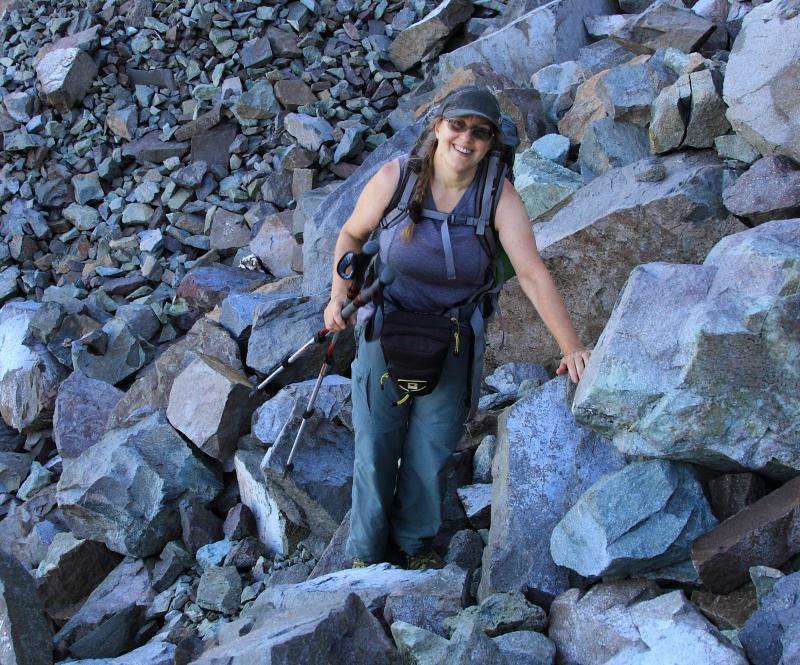 |
